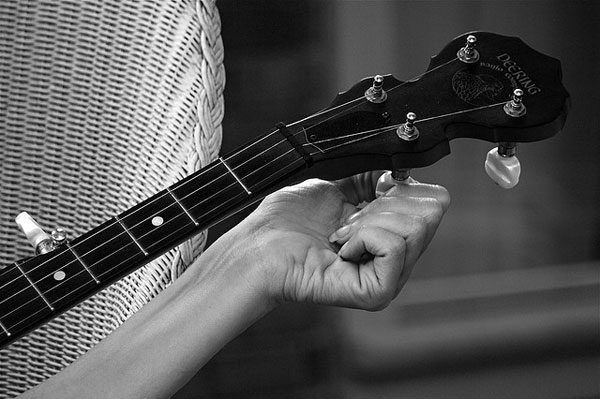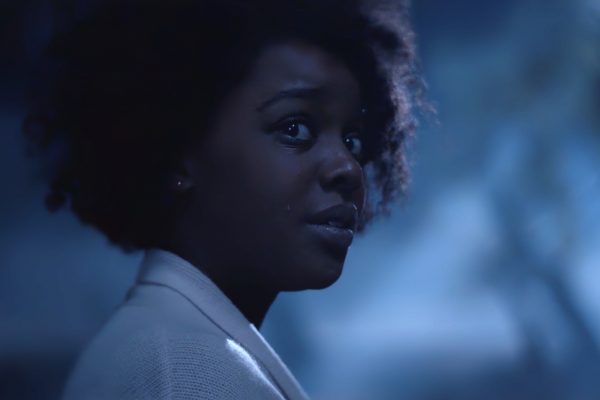Gangsta rap has long been notorious for its violent and often misogynistic imagery. And now it is not only reviled by some, but could land you in jail.
The Times is reporting on the case of Antwain Steward, a Virginia man who is being tried for a double murder. Steward, who raps under the name Twan Gotti, caught the attention of police with his song “Ride Out,” which describes a brutal homicide. Steward contends it is pure fantasy, but investigators see it as proof of his guilt.
“Mr. Steward denies any role in the killings,” according to the Times, “but the authorities took the lyrics to be a boast that he was responsible and, based largely on the song, charged him last July with the crimes.”
It’s not just Steward:
Today, his case is one of more than three dozen prosecutions in the past two years in which rap lyrics have played prominent roles. The proliferation of cases has alarmed many scholars and defense lawyers, who say that independent of a defendant’s guilt or innocence, the lyrics are being unfairly used to prejudice judges and juries who have little understanding that, for all its glorification of violence, gangsta rappers are often people who have assumed over-the-top and fictional personas.
Prosecutors are treating the lyrics as persuasive evidence. “Just because you put your confession to music doesn’t give you a free pass,” former Los Angeles County prosecutor Alan Jackson tells the Times. In a court case, a confession is often the closest thing to ironclad proof.
Rap lyrics themselves may be viewed as criminal. Two Pittsburgh men made a rap video deemed so hostile to police that they were convicted of issuing terrorist threats.
I imagine prosecutors have more to go on than rap lyrics alone, but it’s easy to see how, in these cases, rap is the new hoodie—a symbol of black male aggression. Rap is frequently viewed as threatening; listening to it is taken as a form of misbehavior to be corrected. Witness the case of Michael Dunn, the Florida man who murdered seventeen-year-old Jordan Davis and shot at Davis’s friends after they refused to turn down the “rap crap” they were blasting in their car. Dunn believed the teens were a danger to him. Would he have felt the same way had they been listening to the Beach Boys?
And if violent rap lyrics are signals of menace—indeed, confessions of guilt—what are we to make of murder ballads, those mainstays of folk and country music?
Here are the Wilburn Brothers, a popular country act of the 1960s and ’70s, singing “Knoxville Girl” on their TV show.
In the song, the man beats his lover to death and then drags her body along the ground. Not before she begs him for mercy, though. So he only beats her more, “until the ground around me within her blood did flow.”
The song has endured in various forms across centuries and was recorded not long ago by The Handsome Family, lately noted for “Far From Any Road,” the dusty, spooky theme of the HBO hit True Detective.
How about “Down in the Willow Garden,” performed here by the Everly Brothers.
First he poisons her, then he stabs her (it was, we are assured, “a bloody knife”), then he drowns her. The song likely originated in Ireland before it crossed the Atlantic and entered the canon of bluegrass and old-time music, thanks largely to Charlie Monroe, who recorded it in 1927.
And don’t forget “Banks of the Ohio,” another drowning song. Here is Clarence Ashley, who made the first known recording of “House of the Rising Sun,” singing with Doc Watson, the blind guitar genius who passed away to well-deserved plaudits in May 2012.
Joan Baez, Johnny Cash, and Olivia Newton-John all performed “Banks of the Ohio” at one time or another.
In most murder ballads, the man does the killing. But not always. The old English folk song “William Taylor” features a woman who follows her betrothed into war only to find that he has taken up with another. Scorned, she kills him with a pistol. In many versions of the song, she also kills his “lady fair.”
Here is the fine banjo player and singer Clifton Hicks performing his Appalachian rendition.
Far from suggesting vicious criminality, these songs, coming from the mouths of these musicians, seem nothing if not wholesome.
Steward and the others profiled in the Times article are taking part in a storytelling tradition that traverses boundaries of time, space, and race. See also narcocorrido, the Mexican genre that celebrates drug gangs and their many crimes. Whether these stories are perceived as clean and honest or as threatening seemingly has more to do with who is telling them than with what they say.
That doesn’t mean the accused are innocent. Let’s hope that justice is done in all of the cases in which lyrics are being brought forward as proof of guilt. If Steward and the others are in fact guilty, may the verdict come down against them. But let’s also hope that judges in these cases exclude rap lyrics from evidence. To do otherwise would be to grant bigoted stereotypes the court’s undeserved esteem.








